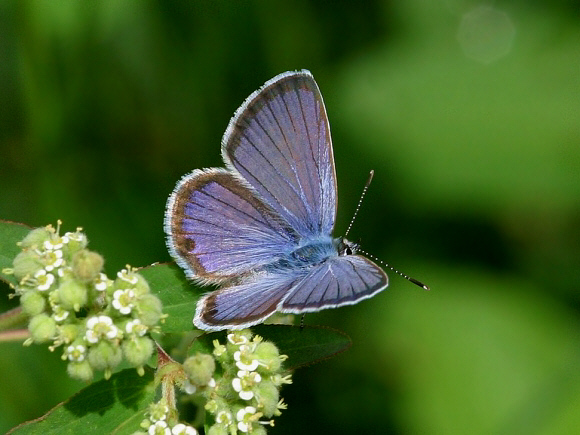
Introduction
There are only about 120 members of the cosmopolitan subfamily Polyommatinae found in the neotropical region, a small number compared to the 1060 members of the Theclinae, which are the dominant group of Lycaenids in South America. Most of the Polyommatinae are confined to the temperate grasslands of the high Andes, although a few species occur at much lower altitudes.
The exact number of Hemiargus species is uncertain due to differing opinions about the taxonomic rank of various races of hanno. Lamas only recognises 2 Hemiargus species i.e. hanno and ramon; and lists ceraunus, gyas, filenus, antibubastus, hanno, astenidas and bogotana as subspecies of hanno. The latest research seems to indicate however that there are at least 6 species i.e. martha, huntingtoni, ceraunus, hanno, ramon and another currently unnamed species from Peru.
The range of Hemiargus ceraunus is believed to encompass Arizona, New Mexico, Texas, Florida, Cuba, Jamaica, Hispaniola and the Bahamas. In Central America it is replaced by huntingtoni which is distributed from Colombia to the Yucatan peninsula, and also occurs in Trinidad.
Habitats
This species is found in disturbed dry grassy habitats at altitudes between 0-1000m. It is most often seen on scrubby grassland, but can also be found along roadsides or in forest clearings.
Lifecycle
To be completed.
Adult behaviour
Ceraunus Blues are active only in hot sunshine, at which time large numbers can be found flying in open dry grassy areas.
